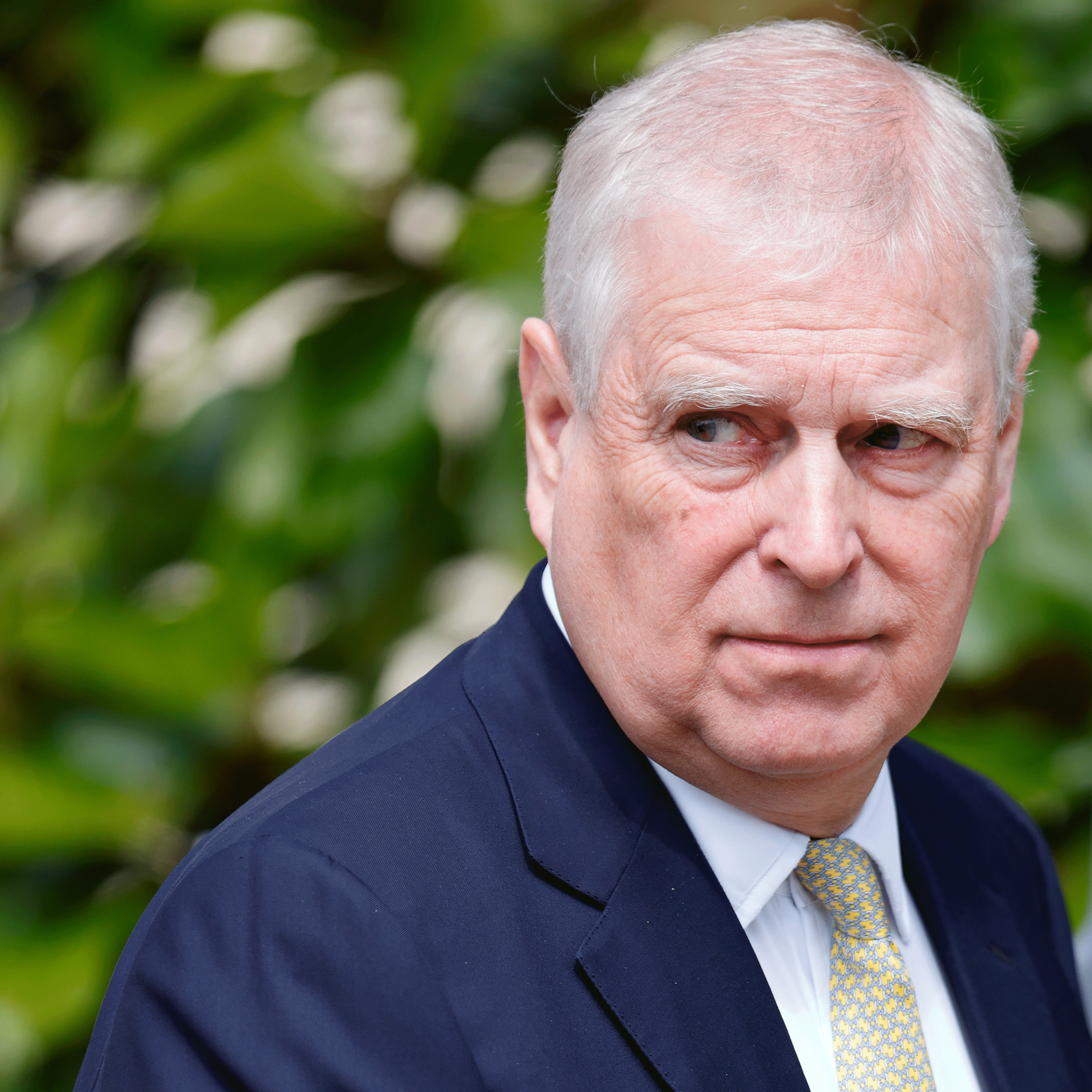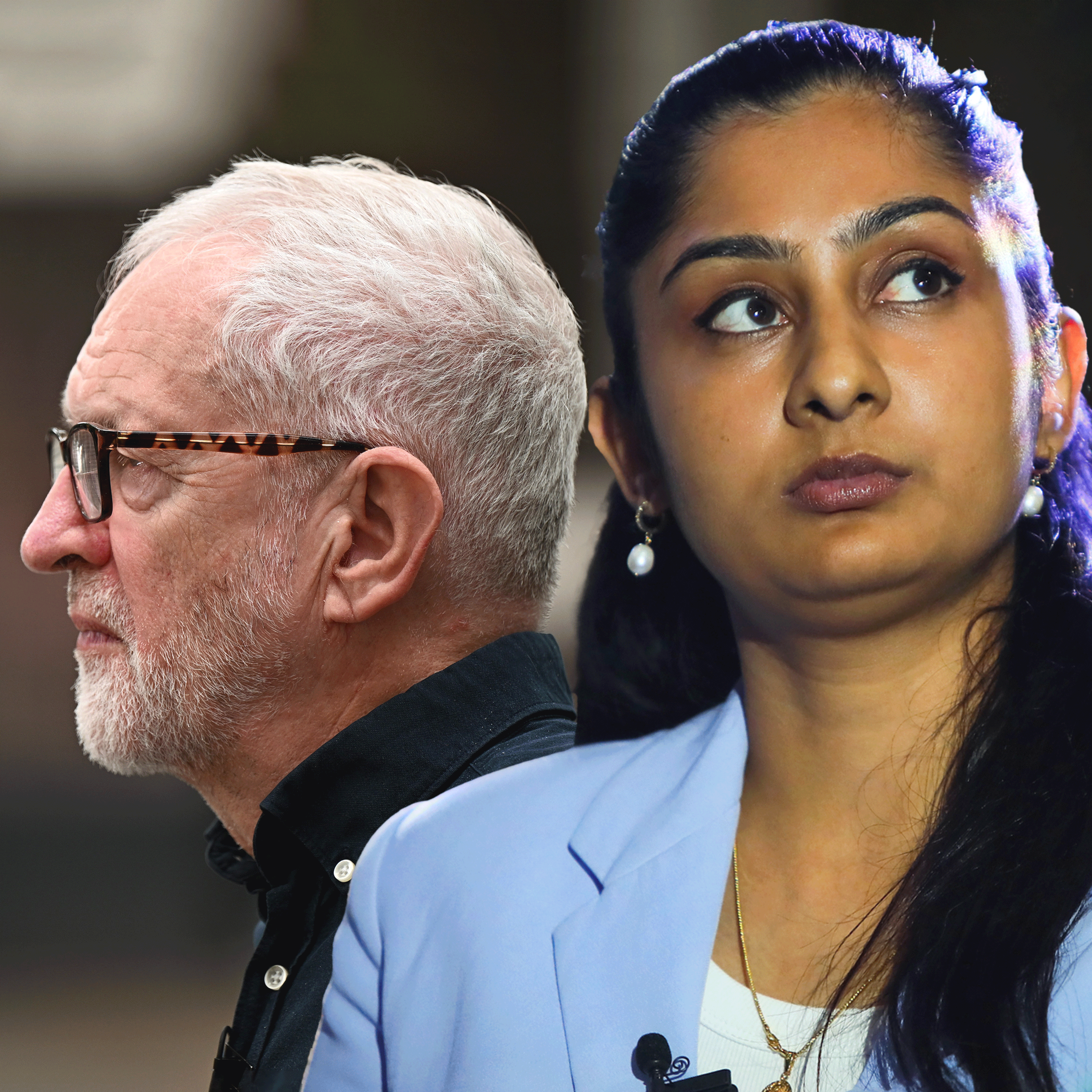107: Paul Foot Awards Specials 1: The Single Injustice Procedure
Press play and read along
Transcript
Let's do the 60-second savings challenge. Step one: download Rocket Money.
Step two, link your accounts and see every subscription you're paying for. Tap one you don't use and cancel it.
That's money back every month. Step three: create a financial goal.
$50 every paycheck, or let the app automatically move small amounts of cash when you can afford it.
In a week, you'll forget you set it up. In a month, you'll see real dollars piling up.
In a year, you'll be shocked at how much money you've saved.
Bonus challenge: upload an internet or phone bill and let Rocket Money try to lower it. You only pay if they find you savings.
On average, Rocket Money members can save up to $740 a year when using all the app's premium features. Users love the app with over 186,000 five-star ratings.
Make saving money the resolution you actually keep. Start the 60-second savings challenge at rocketmoney.com/slash cancel.
That's rocketmoney.com/slash cancel. Rocketmoney.com/slash cancel.
The first impression of your workplace shouldn't be a clipboard at reception. Sign in app turns check-ins into a moment of confidence for your team and your guests.
Visitors, contractors, and staff can sign in by scanning a QR code, tapping a badge, or using an iPad in seconds.
We handle the security, compliance, and record keeping behind the scenes so you can focus on people, not paperwork. Enhance security without compromising visitor experience.
Find out more at signinapp.com. That's signinapp.com.
Page 94, the Private Eye podcast.
Hello, and welcome to another episode of page 94. My name is Andrew Hunterbury, and welcome to an episode with a bit of a difference.
You might notice that this episode is coming out of the normal schedule.
It's also going to feature some slightly different voices, and that is because we are in the run-up now to the Paul Foote Award, which is the jewel in the crown of the calendar of investigative journalism in the UK.
Paul Foote was a brilliant campaigning investigative journalist. He wrote for Private Eye for many years and sadly died in 2004.
The Paul Foot Award is given out in his name every year to a brilliant piece of investigative journalism.
And if you've been listening to Page 94 for a while, you will know that every year we do some kind of special episode talking to the hacks who've written these fantastic stories.
This year we thought we'd try something slightly different.
In the six days leading up to the award next week, we are going to be speaking to each of the six shortlisted entrants for the Paul Foot Awards this year. We're going to have some fantastic stories.
I guarantee you they are jaw-dropping. I hope you enjoy them.
So let's without further ado get on and listen to the first interview with our shortlisted entry number one.
My name's Tristan Kirk. I'm the courts correspondent for the London Evening Standard.
My story is about the single justice procedure.
It is a system where courts sit behind closed doors and it has been a process of exposing the injustices, the harsh treatments and the unfairness that go on within a justice system that the public can no longer see.
What is the single justice procedure? SJP,
just in case anyone's listening, they think we're talking about Sarah Jessica Parker. We're not.
We're talking about the single justice procedure. Sorry, you must get that all the time.
Tell us a bit about it, first of all.
I hope over time to reclaim SJP as meaning the single justice procedure because I think it's so important for everybody to know what it is.
In 2015, the government, in its wisdom, decided that the vast majority of cases that go through the magistrates' courts didn't need to go through open court anymore.
It could just be a magistrate sitting in a private office dealing with court cases on the papers,
essentially just a sort of a rubber stamping exercise saying convicted, convicted, convicted, fine, fine, fine.
This has now swallowed up around about 800,000 cases, criminal cases, each year.
So us sitting in this room, people listening, the normal members of the public, if I put it that way, this is where your case, if you ever get accused of a criminal offence, is most likely to be dealt with.
We're talking about speeding fines, not paying for the right train ticket, not falling behind on your TV licence, not having a licence if you go fishing, that kind of stuff. So, let me explain.
If you are accused of an offence, a low-level offence, and the police police or the counsel or the prosecutor, the rail authority can decide to prosecute you via SJP.
Send you a letter saying you're accused of a criminal offence, and then you can decide, you can write back and say, I'd like an open court hearing. That's always on the table, right?
But the most people don't write back at all. And some people write back and plead guilty, and then it's dealt with
in a private office, as we explain. And if some people plead not guilty, then it moves to open court.
So
that's how it works. That's the mechanism of it.
But what you're saying is that a huge proportion of these cases,
they either don't write back or they plead guilty, which means it happens, it kind of gets sluiced down this particular route. Exactly, yeah.
About 75% of cases where nobody pleas at all, therefore they end up in SJP with the magistrate just dealing with whatever the prosecutor said about you.
And that's interesting because one of the things that your story uncovered was that lots of these cases are brought because people
maybe are not on top of their paperwork. So when it's things like TV licenses or that sort of thing,
the same reason that has made them forget to keep up with their TV license might mean that they're not able to keep up with their paperwork and reply to this, which means they then do get pushed into the SJP procedure.
Is that a fair process?
That's exactly right. So
the critics of SJP in the past have called it conveyor belt justice.
Basically, a load of cases going in front of a magistrate and then their convictions dished out in record time, you know, sort of 45, 50 seconds per case.
What I wanted to look at was what's happening on the conveyor belt, who are these people, and what's the story behind their conviction.
Now, when somebody has been accused of an offence and they've written in and pleaded guilty, sometimes they send in a letter with their guilty plea, mitigation.
What you would normally recognise in a normal traditional court setting as the defence barrister or lawyer standing up and explaining why the offence took place.
Now, in some of the cases that I've looked at, people were being accused of an offence like not paying the TV licence, not paying a bill, the DVLA, right? And they wrote in and said,
I've been in a hospital for six months.
Sometimes they wrote in and said, I've had a mental health breakdown.
Sometimes they wrote in and said,
we've just lost a couple of family members. We're going through this period of bereavement.
And clearly explainable as to why they may well have fallen behind on a bill.
Now in those circumstances, any sort of
right-thinking person, somebody with compassion, would say, you know, if they were prosecuting them, they would say, oh, well, maybe not. Maybe we don't need to prosecute this case.
They've obviously suffered a tragedy. They're in terrible circumstances.
We can withdraw the case. Because these do lead to a criminal conviction.
They do.
And in the single justice procedure, there's no process for somebody to step in and say, It's probably not in the public interest to prosecute these people.
And so the conviction happens, and there's either a discharge from the magistrate, or there's a fine. They often have to pay the costs of the criminal prosecution.
And these people who have had this terrible thing happen to them
get a letter through the post saying, you've been criminally convicted, you have to pay this. If you don't pay this,
we'll send bailiffs after you.
We may well even send you to prison for not paying this fine. So
it's not the case that everyone who's had a bad time just gets a pass on criminal offences, of course not.
But a system should be set up so that it's compassionate, so that it can deal with circumstances when somebody obviously shouldn't be criminally convicted.
And yet, the system we've got just can't cope with that. And what you found is that a lot lot of these letters of mitigation are not even being seen by anybody.
No, no, the system's set up to be so fast-tracked that the prosecutors, the ones that are supposed to take a decision on whether a case is in the public interest, don't see the letters of mitigation when they're entered with a guilty plea.
So
the ones I was dealing with this morning, actually, are to do with people with dementia.
Someone who's got dementia,
they are sent a letter by the DVLA saying you owe a certain amount of of money because you haven't paid your car insurance, something like that.
I think we can all understand why that would happen with somebody whose health is failing that badly. They don't reply to the letter.
They get prosecuted. They go into the single justice procedure.
At this point, their child or a family member picks up the letter. Oh, you know, mum's been prosecuted, dad's being prosecuted.
We must write in.
So they plead guilty, thinking, okay, well, the bill wasn't paid. And then they write in saying, well, you know, my mother's got dementia, she's going into a care home, you know, this is going on.
That's the point where a prosecutor in a functioning system would take one look at that and go, okay, well, we'll withdraw that case. It's obviously not worth pursuing.
This is not in the public interest. SJP, single justice procedure, is just straight to in front of a magistrate.
And the magistrates then look at the letter and go, well, okay, technically a crime's been committed. And there's nothing to the contrary to say that the crime hasn't been committed.
So here's a conviction. And I fundamentally think that we shouldn't be convicting people who are in care homes, suffering from dementia, you know, mental health breakdowns.
You know, that's that's the top level of it.
And then you obviously will move down to the slightly lesser cases where
people who are absolutely on the breadline, you know, they say we've got thousands of thousands of pounds worth of debt and they're being taken to court for not paying the TV license.
And you think, well, okay, technically, you've not paid the TV license. And that, you know, that is against the law and people shouldn't get a pass.
And there's a lot of debate around that.
But you wonder, is it not the case that if the TV licensing authority said, okay, well, we are taking to court somebody who is £20,000 worth of in debt, they'd probably go, well, that's not a very good look for us, and we shouldn't be doing this.
But the system just simply doesn't allow for it. And the numbers are extraordinary.
I mean, in your story, you write there are 4,000 of these things a week.
It's probably more than that, to be perfectly honest with you.
Because of the way the system works behind closed doors and it's a very disparate court system, I can't be sure of that.
What I can say is that there are something like 750,000 to 800,000 cases in the single justice procedure each year.
Now, these cases that I'm talking about, the really tragic injustices, that's not all of them, not by any stretch of the imagination.
But when this system was created in 2015, it was with very little fanfare, little debate, and if you ask me, very little care from the top as to who it might affect and how it would actually operate.
Now, I've started,
in the last year or so, I've started really pulling out
the bad cases
to say, well, look at this. And I'll be honest, I thought that it would have stopped by now.
Once I started publishing these things, posting them on social media, writing about them, I thought that bodies like the TV Licensing Authority, the DVLA, and the courts themselves would think, well, this looks terrible.
We don't want this to happen. Let's do something to put a stop to it.
But they haven't. They simply haven't done it.
And so I'm pulling these things out because I think these are the worst of the worst. But we don't know what else is in there because there's never been
any acceptance from government and from the court system that there needs to be any kind of monitoring of the system. And well, that beggars belief as far as I'm concerned.
Was it hard to report? I mean, was it hard to find the individual cases that best illustrate the injustice of this procedure?
Yes, I think I can probably credit
Swella Braverman for me being
much more interested in this system because she was the one as Attorney General who okayed for COVID breaches to go into the single justice procedure.
In their tens of thousands of COVID breaches being prosecuted in a private office where in a lot of the cases they weren't even telling the media that we're even doing this. Right.
So, so in sort of summer 2020,
I think I guessed that they might be, and I asked, and eventually they said, oh, yes, we did this. Really? And so that decision was taken in private.
The decision was taken in private.
In May, I think May, April, May 2020, they said, well, we're going to be prosecuting lots of these people,
probably. So, what's the fastest channel to process this?
What's the best we can do it?
Fastest, more appropriate, you know, and they were, they talked about open court, they talked about SJP. I got the minutes of the meetings,
and it said, you know, they weighed up the pros and cons. They were accepting that there was going to be an error rate within these prosecutions.
And they thought, well, no, that's fine. Do it anyway.
We hear a lot about how dreadful the backlogs in the courts are anyway, even with this very fast and unjust system in place.
It's kind of reminiscent this story a little bit of the post office story in that it involves people
being
ordinary people being sued in an extremely unjust way and suffering a very opaque procedure. Justice really being done to them rather than them actually kind of being informed what's going on.
Yes, no, I'd hardly agree with that. And what I would say is that the post office, it's very different scandals and injustices, if you ask me.
The post office one is
utterly terrible and people actually went to prison. Nobody's going to prison in the single justice procedure.
But there is one feature that I think draws them very close together.
In the post office scandal, the post office knew what they were doing was wrong and was causing injustice and they carried on doing it. Now,
I've been writing about these kind of cases that we've been describing now for 10 months. There's no excuse for anybody who's prosecuting within the single justice procedure now.
You know that you're doing this to people.
And I keep asking the question of bodies like DVLA, TV licensing, the rail authorities, what are you doing about it?
The courts say
that all the prosecutors in SJP choose SJP. That's their position.
And so it's the prosecutor's choice to go down down this route. With for each individual case, you mean? Yes, exactly.
So it's your choice that you use it. That's what the courts say.
This is our system, take it or leave it. And it's your choice to use it.
And so what I'm saying back to the prosecutors is: well, if it is truly your choice to use it, you are now recklessly prosecuting people knowing that you won't know about their circumstances.
So you're putting forward a case, say, take the DVLA, you're putting forward
the case against an 85-year-old man who hasn't paid for his car tax.
Well, you know, there's a solid chance that that 85-year-old man is not very well.
And perhaps there's a very good reason why he's not paid for his car tax. Do you want to find out about it? If you do, don't use SJP.
And if you do use SJP, then you need to change it so that you actually see whatever letters come in. That's my case.
And I haven't yet convinced any of the prosecutors to pull out, but who knows?
Okay. Do you think there is a prospect of the system being changed?
I think there's a prospect. Well, I think it certainly should be.
It's going to be for the next government to change it.
I think it's too big now
for people to sort of unilaterally pull out and say we're not doing it. But it's got to change.
I'm going to continue publishing these things until it does. I think people react very strongly to these articles.
I mean, I've seen lots of the stories praised on Twitter, and people become ⁇ people are enraged about it because the injustice is so clear it's so concrete and it's happening to ordinary people up and down the country yes I mean it should be yeah yeah absolutely because it could be anybody's anybody's mum or dad it could be ourselves where it happens to you and as I said you know at the start that the vast majority of people don't actually enter a plea we don't quite know why that is but so there's that hidden potential injustice there.
So for every letter that's written in from somebody saying, you know,
I've got this really big health problem or my dad's got dementia, there may well be like 10, 20, 100 people who don't even write that letter. Right.
But it's still happened to them anyway.
People who don't have a child to write and say
whatever it may be. I think
there's not enough conversations, if you ask me, about mental health and how people deal with those.
If somebody's already in the midst of a mental health crisis and they get a letter through the post saying you haven't paid a bill and we're taking you to court, that could make things 100 times worse.
And And again, I've asked the question many, many times and I've never had a satisfactory answer as to
what do you do to help people who are in those circumstances.
Somebody says when you turn up on the doorstep as a TV licensing inspector and they say, I've got really bad mental health problems, what is it that actually happens to help them?
As far as I can tell, not an awful lot.
There you have it. Thank you so much for listening.
We hope you've enjoyed that little insight into the world of investigative journalism. There will be another one of these tomorrow.
If you just can't wait for that, then feel free to subscribe to the magazine instead, private-ny.co.uk. Thanks for listening.
We'll be back again shortly with another one.
California has millions of homes that could be damaged in a strong earthquake. Older homes are especially vulnerable to quake damage, so you may need to take steps to strengthen yours.
Visit strengthenyourhouse.com to learn how to strengthen your home and help protect it from damage. The work may cost less than you think and can often be done in just a few days.
Strengthen your home and help protect your family. Get prepared today and worry less tomorrow.
Visit strengthenyourhouse.com.
If you trust Azure Standard for clean organic foods, meet Azure Well, the supplement brand built on the same mission, purity, potency, and purpose.
Crafted with whole food ingredients and no fillers or GMOs, Azure Well supports your health naturally.
Visit AzureWell.com to explore supplements made for real families from the family who's been nourishing healthy homes for decades.
And as a welcome gift, use code iHeartAZ15 for 15% off your first order. A-Z-U-R-E-Livingwell.com, code iHeartAZ15.
New customers only first order a minimum of $100. Term supply.
Ever wish you could actually get your email inbox, Slack, or iMessage down to zero. Yeah, me too.
But then I tried Whisperflow, the AI-powered voice keyboard that works inside any app or website with no setup. Now I just talk.
Unstructured thoughts, long replies, quick clarifications.
Clear, organized, done.
In box zero, finally possible. Download Whisperflow free at whisperflow.ai.
That's WISPRFLOW.ai.





